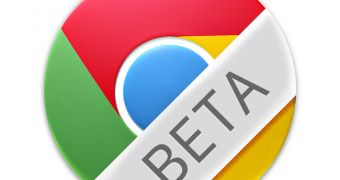Google Chrome 31 Beta has landed on Android as well, and those eager to be the first to get all the new Chrome features (and bugs) have probably already been updated to the latest version. This major update doesn't bring a whole lot of features, but there is one standout, application shortcuts.
Like the old website shortcuts on the desktop, it's now possible to add a link to any site you want to your Android homescreen. That may not seem like much and, indeed, most users will probably not even use this feature. For most websites, it doesn't really make any sense either.
But there is one small detail that makes website shortcuts a very interesting new feature and one to look out for in the future. Website owners can add a meta tag to indicate that the site can run as a standalone mobile app.
When Chrome encounters this tag in a page with a homescreen shortcut, it will launch the site in a dedicated, chromeless window with no tabs, no controls, no Omnibox and so on. What this means is that sites launched this way will look and feel very much like native apps.
Google isn't making too much fuss about this, but it is a fundamental shift and may mean a great deal for the mobile web moving forward. Mozilla already supports this mode of thinking, all Firefox OS apps are built with standard web technologies and can run without being installed locally, entirely from the web.
Making it possible for web apps to integrate deeper with Android could level the playing field with native apps somewhat. Currently, native apps completely dominate the mobile space, most websites and companies put out an app even if they have a perfectly good mobile site, just to get noticed.
Yet, when the iPhone came out, Steve Jobs wanted everything to happen on the web, there were no third-party native apps at all. In fact, native apps only came a year later as a result of the fact that, in 2007, the web didn't provide too many capabilities for apps. With the advent of HTML5, CSS3, WebGL, WebRTC, Websockets, IndexedDB and so on, this is no longer true, the web as a platform is great for apps.
However, website shortcuts on the home screen, even the chromeless version, are a very small step. If there is to be a significant move away from native apps and towards the web, Google will have to do a lot more than this and, to date, there's no indication that the company has any intent of doing that.

 14 DAY TRIAL //
14 DAY TRIAL //